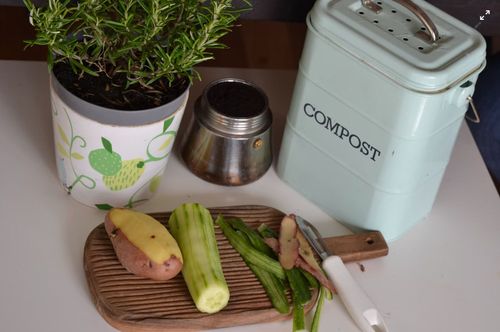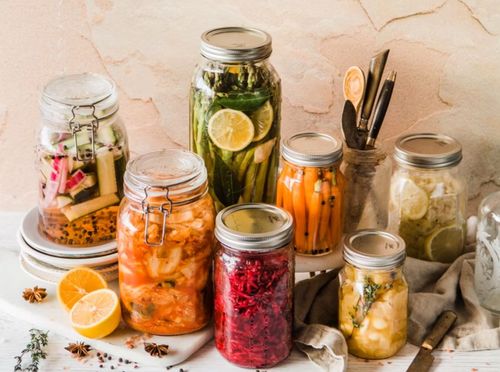Your habits are helping the environment
So, your sustainability quotient is regularly touching the high score – you bring reusable bags to the grocery store, you don’t waste food and compost the scraps, you have reduced your plastic waste and frequently recycle any plastic landing in your house, you are a strong advocate for animal rights along with human rights, and you shop at HappyLyfe. You are doing really WELL!
But, your loved ones’ habits are not…
However, your partner likes those plastic-wrapped single bananas from 7/11 or those tiny water bottles conveniently available at all the waiting rooms (be it a spa or a dentist!) or taking the car out even for short, walkable distances. You cringe at all of those things but struggle to get your family and friends on board this amazing sustainability journey. You’ve tried telling them all the different ways that they can be more mindful, but it just doesn’t seem to matter. In fact, in your recent interactions, they are getting more annoyed or upset or, even, angry with you. You have shared relevant and shocking data – data that shows how badly we are doing as Earth-dwellers. On a certain level, your loved ones do understand how they are negatively contributing to the decline of the planet. But these facts just make them feel more guilty than aware. And, when people feel bad about themselves, there cannot find the motivation to take action. You might know all of this and might be trying to offset their damage by recycling on their behalf, but it’s making you feel overwhelmed. You are stuck because it seems like no one wants to understand the human and environmental impact of their habits.
You have company
Fret not, you are not alone. Today, families are polarized and feel conflicted, especially around hot-button topics like climate change, politics, and sustainability. Bringing up sensitive subjects with family and friends is never easy. If you’re not careful, your words could offend – or even alienate – your loved one.
Before you jump into a difficult conversation, invest some time in thinking about how you’re going to craft your message. A well-planned discussion is much more likely to be well-received.
Start with the goal of the conversation
Spend some time thinking about why you want to hold the conversation. Make sure you’re honest with yourself about your intentions, needs, and goals for the conversation. Consider what an ideal outcome would look like, but recognize that you can’t force anyone else to adopt your viewpoint or make the changes you suggest.
Remember, habits die hard
When you want to talk to friends and family about sustainable actions, especially the ones that are entrenched in their lives as routines, remember it is difficult to let go of habits. When you wanted to start exercising, you knew it would be good for your mental and physical health, but staying in bed was just…easier. These kinds of changes need more than a suggestion and have to be voluntary.
While trying to start something good, the last thing you need is for someone to show any kind of self-righteousness. That is almost always off-putting. So if you set out to convince someone to change, you are not giving them a chance to convince themselves. And, when they don’t reach the conclusion on their own, nothing will create a lasting change.
Observe and listen
If you want to be a catalyst in bringing about a positive change in your loved ones’ lives, start by observing them. What are their daily habits? Why do they prefer that single plastic-wrapped banana? Maybe, it is because they are trying to control food waste, and buying a single banana is better than buying a bunch and letting it rot. Maybe, they are crunched for time and this 7/11 is right on their way to work/school/home.
Ask them open-ended questions and listen. Listening is the real key to change. So when you talk to friends and family about sustainability, ask them about their experiences, their feelings, and their points of view and truly value their answers. When you bring empathy in your listening, you understand what’s truly important to them. And, you can try to find a way to communicate with their point of view in mind. Even though this is a time-consuming approach, it also helps you become a more empathetic person.
Then, share
Now, start sharing your experiences as well. With empathy and self-assurance, slowly build your point – don’t try to prove a point. When you try to prove a point, the main issue gets lost and the heated discussion makes it harder to come back to it again.
Expect negative reactions as you’re putting your loved ones on the spot and asking them to look at themselves and their habits. However, you are not trying to force a change. You are just sharing a message in a respectful way.
The key is still to focus on having a 2-way conversation. Don’t try to convince, because when people feel heard they listen and, more often than not, take action. It may take several conversations for your message to sink in. But as long as you listen empathetically and respectfully, disagreements will always lead to something positive.
Find a good time and a comfortable place
Difficult conversations are best done in person, as it allows you to read the other person’s body language and change your approach and/or words accordingly. Make sure to emphasize that you are coming from a place of concern, not anger or disgust.
Try to initiate the conversation when you and your loved ones are in a comfortable area, where you both feel safe and un-judged.
Also, make sure that both you and the other person have plenty of time to talk. The last thing you want to do is start something productive and then leave that to run to another engagement. When you end the discussion, make it clear that you are open to revisiting it whenever you both have time.
Everyone is involved
Sustainability is about the well-being of everyone, whether they consciously or subconsciously work towards it or against it. It is about creating a future in which we all thrive. So, don’t fall into the trap of “I’m right, and you’re wrong”. Instead, continue the conversations! So, don’t fall into the trap of “I’m right, and you’re wrong”. Instead, continue the conversations!

 English
English
 Thai
Thai


